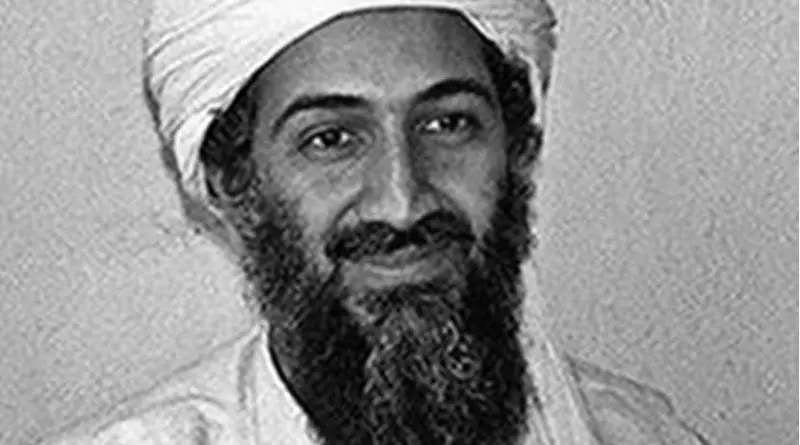Slow Eclipse, Sudden Death Of Bin Laden’s Enterprise – OpEd
By Arab News
By Fawaz Turki
We know who killed Osama Bin Laden on the night of May 2, 2011, but who killed Al-Qaeda, once a deadly transnational terrorist organization that plotted countless attacks around the world, but is now a mere ghost of its old self?
David Ignatius, senior foreign affairs columnist for the Washington Post, was given exclusive access to some of the documents taken from Bin Laden’s compound the night he was shot dead by Navy Seals in Abbottabad, Pakistan. If these documents reveal anything, they reveal how simple, even simple-minded, the terrorist leader’s perceptions were about the United States, his group’s principal nemesis.
In a 48-page letter, described by Ignatius as “rambling,” that Bin Laden sent to a top associate called Ilyas Kashmiri (since dispatched by a drone strike), he calls on his network of operatives to organize special cells in Afghanistan and Pakistan to kill President Obama and Gen. David H. Petraeus by targeting their aircraft.
The strategic significance of such an operation? Well, Obama is “the head of infidelity” and knocking him off will mean that Vice President Biden will take power in the White House.
And since Biden is “totally unprepared for that post, (this) will lead the US into a crisis.” And doing away with Petraeus “would alter the war’s path” in Afghanistan. Ignatius called that a “chilling reminder” of Al-Qaeda’s deadly ambitions even while its leader was in hiding. I beg to differ. If the 48-page missive is a reminder of anything at all, it is a reminder not only of how Bin Laden appeared to live in a phantasy world, but how little he knew about the political system that makes the US run as a nation and as a big power.
Administration officials said last week that the Obama-Petraeus scheme was never taken as a serious plot (Al-Qaeda clearly does not possess the kind of sophisticated weaponry to bring down US aircraft) and others dismissed it as bluster.
The other documents captured at the Bin Laden compound, mostly desultory letters to associates that, given security concerns, would reach their destinations months later, bemoaned the fact that the group’s operatives were now senselessly turning on fellow-Muslims in Iraq and elsewhere, and that “we (in Al-Qaeda) are approaching a stage where narrow-mindedness is a killer.”
So Al-Qaeda today is not just a wreck, but is irrelevant as well. Perhaps as a putative revolutionary movement, it was destined to be irrelevant from the outset, behind the times in its social ideology and its political program for a united Islamic polity spanning the globe.
So who killed Al-Qaeda, or more accurately, what caused it to unravel. Simply this: Its false premise.
In his copious writings back when his organization was riding high, and he was the most well-known trouble-maker in the world, Bin Laden spoke of the “moving stream through which the currents of modern Muslims’ history flowed …”
The currents flowed, but the stream metaphor was itself flawed. Muslims around the world did not share a contiguous history. Muslim countries were not a single body traveling down, as a stream, in one direction. They evolved differently, had different semantic fashions of perceptions, and viewed differently the shaping powers of their political future.
Notice how even in the Arab world, during its people’s long popular uprising, now in its second year, every country’s revolt was unique, mounted here by civil society, there by armed insurrection, each responsive to its own peculiar bent of mind and historical experience. If there was a commonality that bound them together, it was this: Bad governments govern badly, and they carry within them the seed of their own destruction.
Al-Qaeda resorted to violence, often gratuitous violence, even against the very fellow-Muslims whose support it sought to enlist, and made an abstraction of the self-definitions embraced by the one-billion-plus souls inhabiting the Muslim world. Common people abhor abstractions.
Like the bad governments that governed badly in the Arab world, and that in time were given the boot by their people, Al-Qaeda too governed badly — and theorized just as equally badly. Its demise was slow, its leader’s death abrupt.
In Ernest Hemingway’s The Sun Also Rises, Bill Gorton asks the once affluent Mike Campbell, “How did you go bankrupt?” The latter responds, “Two ways, gradually and then suddenly.”
Those thousands of captured documents, already declassified and soon to be made available to the public, also in their original Arabic, will go into the archives. Out of sight, out of mind.
What will stay with us is that haunting image of an avuncular-looking, gray-bearded man, sitting cross-legged on the floor in a spartan living room, a blanket over his shoulder and a knitted cap over his head, watching a 12-inch television set, with a mesh of ungainly cords dangling around it. The face of terror is indeed banal.

